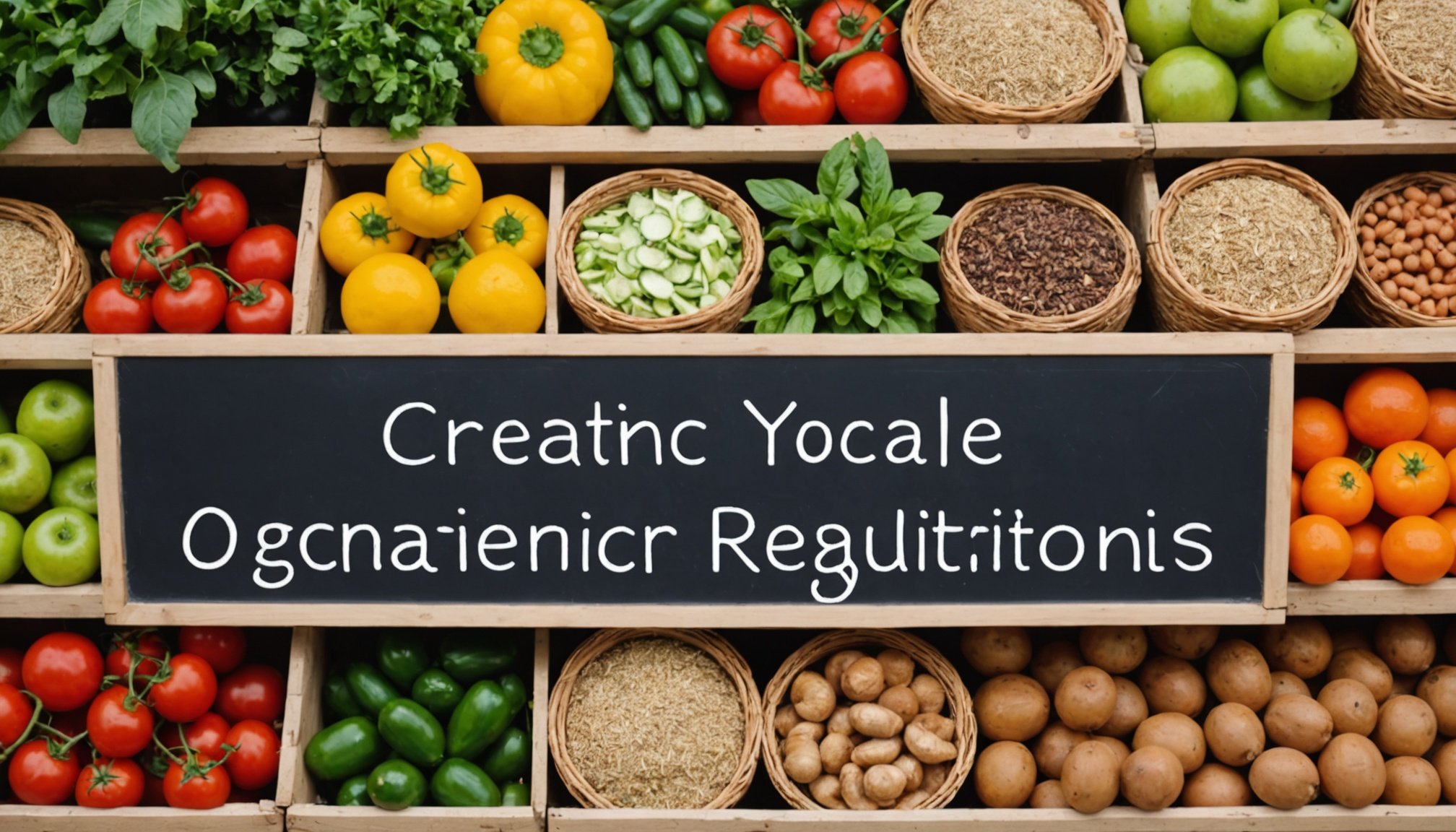Understanding the Organic Food Market in the UK
The organic food market in the UK has experienced notable growth, driven by increasing consumer awareness about health and sustainability. This surge has been compounded by evolving UK consumer trends that favour organic products. Understanding these trends is essential for market players aiming to capture and sustain consumer interest.
A significant factor driving demand is the increased emphasis on environmentally friendly and health-conscious living. Consumers are prioritising products that promise no harmful chemicals and promote ethical farming practices. This shift represents a pivotal change in consumer behaviour, signalling opportunities for businesses to capitalise on these emerging preferences.
Topic to read : Mastering UK Import Laws: The Essential Guide for Luxury Watch Retailers
Market analysis techniques assist businesses in identifying these opportunities within local regions. Techniques such as SWOT analysis (Strengths, Weaknesses, Opportunities, Threats) and competitor assessment provide critical insights into market dynamics and help identify gaps or areas for growth. Experts encourage businesses to adapt their strategies in alignment with these analyses to maximise competitive advantage.
Focusing on UK consumer trends and utilising comprehensive market analysis will enable businesses to strategically position themselves favourably within the organic food sector. Understanding consumer preferences and industry drivers serves as the foundation for building a successful and sustainable presence in the UK organic food market.
In parallel : Navigating uk packaging waste regulations: the ultimate handbook for new consumer goods brands
Sourcing Organic Products
In the vibrant sphere of organic food, sourcing organic products from dependable organic suppliers is vital for ensuring quality. Success hinges on identifying and vetting suppliers who strictly adhere to organic standards. When seeking new partners, consider visiting their facilities and requesting certification documents. This diligence verifies their commitment to organic practices.
The significance of sustainable sourcing cannot be overstated within the organic industry. It ensures minimal ecological impact and promotes biodiversity. Prioritising local suppliers supports community economies and reduces carbon footprints associated with transportation. Sustainable practices are not only environmentally but also economically beneficial, offering an edge in brand differentiation.
Building robust relationships with local farmers and producers strengthens supply chains. Engaging proactively with these stakeholders fosters trust and transparency. This collaboration can lead to beneficial partnerships, such as exclusivity agreements or joint marketing efforts. Creating mutually beneficial agreements enhances the supplier-customer bond and secures a steady flow of quality products.
Establishing these relationships requires understanding both agricultural challenges and market dynamics. By bridging the gap between production and retail, businesses can better respond to consumer demand while ensuring their product sourcing aligns with sustainability imperatives. Such partnerships form the backbone of a thriving organic food market.
Navigating Local Health Regulations
In the organic food market, adhering to health regulations is crucial for consumer safety and business compliance. The UK has specific regulations governing organic products, including stringent food safety standards. These ensure that organic foods maintain their integrity from farm to consumer. Compliance is not just about meeting legal requirements, but also building trust with consumers who prioritise quality.
To achieve compliance, businesses should follow a structured approach:
-
Understand the Regulations: Familiarise yourself with local regulations that impact organic foods. This includes specific labelling requirements and production standards.
-
Develop a Compliance Plan: Create a documented plan detailing how your business will meet these standards. This should involve regular staff training and updates.
-
Perform Regular Audits: Conduct internal audits to ensure ongoing adherence to safety standards. This helps identify any areas needing improvement.
Staying updated on regulation changes is essential. Businesses can leverage resources like government websites and industry publications to remain informed. Joining relevant industry associations often provides access to the latest updates on health regulations. These steps support not only compliance but also the overarching goal of maintaining excellence in the organic food sector.
Marketing Your Organic Food Market
In the dynamic realm of organic food, devising effective marketing strategies is crucial to capture the interest of health-conscious consumers. A successful approach involves understanding consumer preferences and crafting messages that resonate with their values. Organic food shoppers often prioritise transparency, environmental impact, and health benefits. Aligning your brand with these aspects can significantly enhance appeal.
A well-defined branding strategy is essential. This encompasses everything from your logo and packaging to the narrative you build around your products. Incorporating eco-friendly elements into your branding underlines your commitment to sustainability, a key factor for many organic food shoppers. Consistent messaging across all platforms helps establish a strong, recognisable identity.
Social media plays a pivotal role in consumer engagement, offering a platform to share stories, educate audiences, and build communities. Regular updates on new products, health tips, and sustainability initiatives can foster a vibrant connection with consumers. Additionally, community engagement through events, workshops, or partnerships with local organisations reinforces your brand’s presence and trustworthiness.
Implementing these strategies not only draws in new customers but also helps maintain loyalty by staying true to the organic movement’s core values. This approach ensures your market remains aligned with consumer expectations and industry trends.
Best Practices for Operational Success
Success in the organic food market hinges on a combination of operational efficiency, stellar customer service, and proactive market management strategies. Achieving operational efficiency involves streamlining processes to reduce waste and maximise sustainability, crucial given the industry’s focus on environmental impact. Implementing effective inventory management practices, such as regular product rotation, ensures freshness and reduces spoilage, both essential in upholding high organic standards.
Exceptional customer service is instrumental in building and maintaining customer loyalty. This means training staff to be knowledgeable about organic practices and products, ensuring they can provide informed guidance and personalised recommendations—key factors in enhancing the customer experience. Listening to customer feedback and promptly addressing concerns also play vital roles in fostering trust and satisfaction.
For optimal market management, developing strategies that reflect consumer demand and market trends is critical. Seasonal promotions or partnerships with local producers can drive engagement and sales, aligning the business with community values. Additionally, utilising digital tools for inventory tracking and sales analytics aids in informed decision-making and efficiency improvements. These best practices establish a foundation for a successful, customer-focused organic food market.
Case Studies and Real-World Examples
Exploring case studies provides invaluable insights into successful strategies within the organic food market. These success stories illustrate various approaches that businesses have taken to capture the interests of UK consumers. For example, enterprises that have effectively aligned their offerings with current consumer trends have demonstrated marked growth and sustainability.
One compelling example is a UK retailer that embraced sustainable sourcing by partnering with local organic suppliers. This strategy not only enhanced their product appeal but also strengthened community ties. Through consistent market analysis, they identified gaps in regional demand and expanded their product lines accordingly, resulting in a noteworthy increase in market share.
Another case study highlights an organic food business that faced regulatory challenges. By utilising comprehensive compliance resources, they navigated obstacles, showcasing their dedication to complying with local health regulations. This commitment bolstered consumer trust and reinforced their market position.
Learning from these operators reveals key industry insights that others can replicate. Engaging with niche audiences, fostering local relationships, and embracing innovation in market management are pivotal. By analysing these examples, businesses can deduce practical methods to enhance their operations and achieve similar success in the ever-evolving organic sector.
Resources for Compliance and Growth
Navigating the organic food market’s landscape requires knowledge of regulatory compliance and strategic growth tools. Compliance resources are essential for understanding and meeting the complex regulations that govern organic products. Businesses should regularly consult government websites and publications such as DEFRA in the UK, which offer comprehensive guidance on organic standards and food safety.
To foster growth, it’s crucial to leverage growth tools and technologies that aid operational efficiency. Inventory management software can optimise stock levels, reducing waste and ensuring product quality. Sales analytics tools assist in identifying market trends, providing actionable insights for expansion and market management.
Industry associations play a pivotal role in supporting organic market players. Associations such as the Soil Association offer certification and support, while also advocating for the sector’s development. Membership provides access to resources, networking opportunities, and industry updates.
Adopting appropriate tools and software not only drives operational improvement but also positions businesses for sustainable growth. By engaging with these resources, companies can ensure compliance while building a robust framework for future success. Embracing these strategic elements empowers businesses to thrive in an increasingly competitive organic market.







